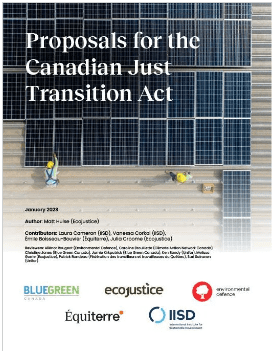VANCOUVER- Good Jobs, Clean Skies, a co-publication of Green Jobs BC and Blue Green Canada, finds that the Mayors’ Council Transit and Transportation Plan will generate thousands of jobs, significantly cut traffic congestion, and reduce the environmental impact of transportation in the region.
“The benefits of the transit plan are clear,” said Lisa Matthaus, co-chair of Green Jobs BC. “The Mayors’ Council plan, if adopted, will create family-sustaining green jobs, reduce travel times, ease congestion, and reduce our dependence on fossil fuels. This plan will transform the way people get around.”
The report was co-authored by Blair Redlin, public policy researcher and former Deputy Minister of Transportation, and economist David Fairey. It forecasts that the Mayors’ Council Transit Plan will result in 43,800 person years in total new employment, $2.96 billion in wages and $4.48 billion in GDP, while reducing projected greenhouse gas emissions by 8.2%. The report also finds that carrying on with the status quo would cost the region an additional $1 billion per year by 2045, doubling the current costs of congestion, while implementing the Mayors’ plan would reduce the costs of congestion by as much as 41.3%.
“The Mayors’ Council plan will create jobs and reduce emissions,” said Charley Beresford, Chair of Blue Green Canada. “Transit dollars have a remarkable multiplier effect, with every dollar invested in transit creating $1.48 in benefits. This plan makes good economic sense for the region.”
Over 6,000 people in Metro Vancouver work in mass transit. The report projects the plan will add an additional 5,901 person years of employment annually by 2024. The plan would make it easier for people to access jobs, putting 60,000 more jobs within reach of people in the region.
“Metro Vancouver has become a lot more transit oriented,” said Matthaus. “Between 2003 and 2013, the region saw almost 90 million more trips on transit. The status quo will result in more traffic and make it harder to get to work, while better transit will cut congestion and keep the region livable. Increasing the number of trips on transit is also vital to help us reach our climate change goals.”
BC’s Greenhouse Gas Reduction Targets Act mandates that greenhouse gas emissions are to be 33% below 2007 levels by the year 2020. Transportation makes up almost a third of greenhouse gas emissions in Metro Vancouver, the single largest source of emissions in the region. The report found that the drop in emissions the plan is projected to bring about will be key to meeting provincial targets.
“We’re past the argument about economy versus environment,” said Beresford. “The world is getting serious about building a green, inclusive economy, and this plan is in step with that process. This is an investment in real climate action, in cutting congestion and in building a more just and prosperous economy for everyone.”
-30-
Contacts:
Charley Beresford, Blue Green Canada Chair, 778.772.8188
Andrew Radzik, Green Jobs BC Coordinator, 778.896.4441


